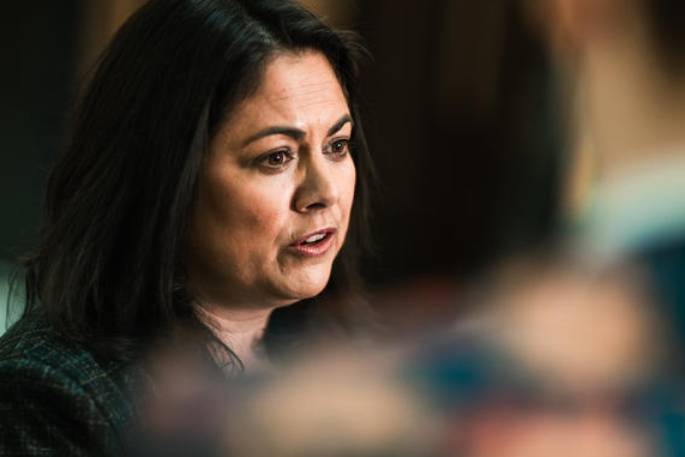Covid-19 Response Minister Dr Ayesha Verrall is holding a briefing on the Ministry of Health's plans for handling new Covid-19 strains as the health system struggles to cope with winter illnesses.
Dr Verrall says the virus is expected to continue to evolve, which is why the Ministry of Health has been asked to plan for how that may happen.
"There is a lot of uncertainty, and in that context having a highly prescriptive plan can actually be a liability. Instead we need to be prepared for different scenarios and to be able to adapt as we need to."
She says the ministry is now clear on what capabilities are needed.
Director-General of Health Dr Ashley Bloomfield says the ministry has developed five new variant scenarios, "each with a differing degree of severity and transmissibility - or actually more vaccine escape or immune escape - and this has led to the variants of concern strategic framework".
He says it's crucial the most vulnerable populations in the community are protected, and that disruptions to health, businesses and social and educational outcomes are minimised.
He says public health experts, iwi, Pasifika, faith, community and business groups were consulted and equity under Te Tiriti o Waitangi was considered.
Officials also looked at international evidence and overseas approaches.
"There's an old saying 'plan for the worst and hope for the best'. We're not doing any hoping here. We're planning for the best and we're planning for the worst and everything that's in between."
He says we're now mostly seeing sub-variants of Omicron.
"Each of these scenarios we're assuming that the new variant has to be more transmissible than Omicron. So the transmissibility is a given - it will be more transmissible that Omicron and it's current subvariants ... the two dimensions we're most interested in is what's the clinical severity of the new variant."
He says we saw with Omicron the severity was much lower than other variants like Delta.
"The first scenario ... one could call rightly the worst-case scenario. So a variant that's high clinical severity - so Delta or even worse - but also high immune escape. That is, prior infection or a vaccination with our current vaccines doesn't confer a lot of protection and also there are questions about whether our current therapeutics may or may not be effective against that new ... variant."
The second scenario is one that's low severity but more transmissible and with immune escape.
"So you see a lot of people getting infected again, so high impact in the community and you'd imagine high case numbers with that."
The third scenario has high severity but low immunovation.
"In other words, actually prior infection or vaccination does confer a high degree of immunity but if you do become unwell with it, more likely to get very unwell and more likely to cause hospitalisation and death."
The fourth scenario is of low severity and low immunovation.
"You could think of some of these subvariants of Omicron as a bit like this. They've got an advantage in terms of transmissibility but at this point in time don't appear to be more severe."
The fifth scenario would be if there are multiple subvariants.
"The key thing about this ... is to make sure that we've got the information and intelligence that is alerting us to whether and when these variants are in the community, that we've got the infrastructure, the workforce and the capacity ... and we've also got the coordination and decision-making mechanisms ready to stand up quickly if they're needed."
Verrall says being prepared for a new variant doesn't commit us to a course of action, it's about being ready to respond when we need to.
She says although PCR is not the primary test at the moment, the government is ensuring it retains PCR capacity, and will retain contact tracing networks.
Meanwhile, emergency departments around the country are facing high demand and staff shortages, with at least one district health board delaying planned surgeries for weeks.
In Auckland, extra payments to GPs within Counties Manukau area was trialled last weekend and will go ahead again over the Matariki long weekend to try and relieve pressure on Middlemore Hospital.
The government yesterday denied that the health system was in crisis, but admitted it was under strain.
Meanwhile, National leader Christopher Luxon told Morning Report today that its plan to add nurses and midwives to the fast-tracking residency scheme would help the current strain on the health system.
Earlier this month microbiologist Siouxsie Wiles said with the new Omicron subvariants, BA2.2, BA.4, and BA.5, now in New Zealand the question was when the next wave of Covid-19 cases would hit.
More to come..



1 comment
Backlash
Posted on 22-06-2022 13:20 | By Hugh Janis
Expect the wrath of the people.
Leave a Comment
You must be logged in to make a comment.